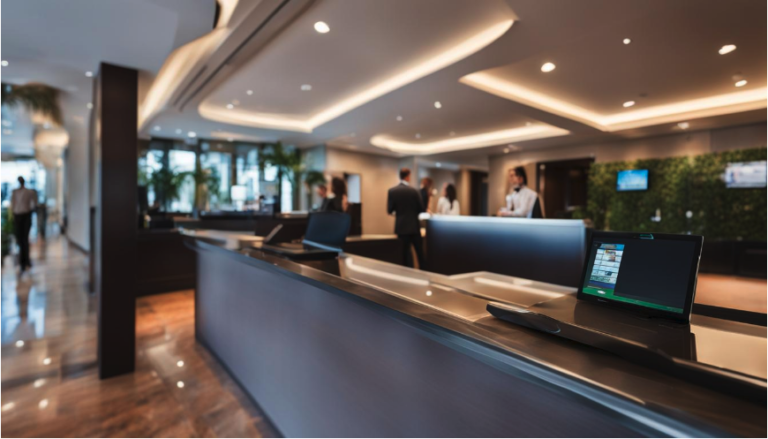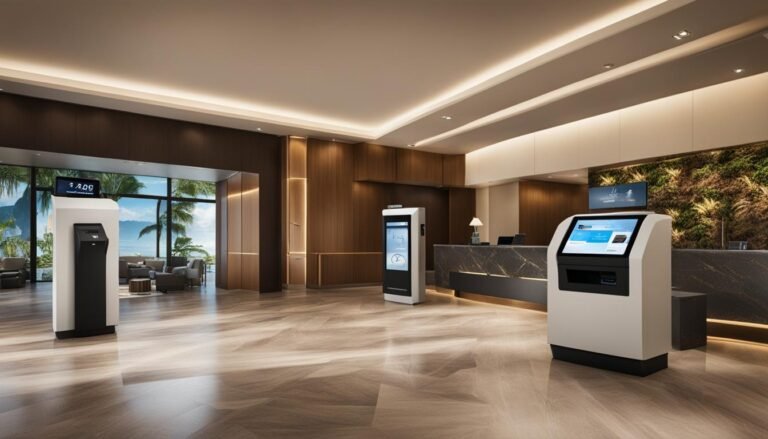Quality Control in Tourism Services
In the highly competitive and dynamic tourism industry, quality control is paramount in ensuring customer satisfaction and loyalty.
The ability to consistently deliver exceptional tourism services is not only a reflection of a company's commitment to excellence but also a means of distinguishing itself in a crowded marketplace.
From the initial point of contact to the overall experience, every aspect of the tourism service must adhere to rigorous quality standards to meet and exceed customer expectations.
However, achieving and maintaining such high standards in the realm of tourism services comes with its own set of challenges and complexities.
Key Takeaways
- Quality control is crucial for ensuring customer satisfaction, maintaining a positive reputation, and fostering long-term success in the tourism industry.
- Implementing quality standards and maintaining service excellence through quality control measures can lead to reduced costs, improved operational efficiency, enhanced customer experiences, increased customer satisfaction, and a competitive advantage.
- Key elements of quality control in tourism services include standard operating procedures (SOPs), staff training and development, feedback mechanisms like customer surveys, implementing quality standards, standardized processes and workflows, regular monitoring and evaluation, effective communication and feedback systems, training and development programs, and continuous improvement initiatives.
- Quality control is important in various aspects of tourism services, such as accommodation (ensuring cleanliness, safety, comfort, and accurate billing), transportation services (reliable and punctual services, well-maintained vehicles, professional and courteous staff, adherence to safety regulations), and tourist attractions (well-maintained and safe facilities, accurate information, efficient ticketing processes, cleanliness, and environmental sustainability).
Importance of Quality Control
The importance of quality control in tourism services cannot be overstated, as it plays a critical role in ensuring customer satisfaction, maintaining a positive reputation, and fostering long-term success in the industry.
Customer satisfaction is the cornerstone of service excellence in the tourism sector. Quality control measures are essential to meet and exceed customer expectations, ensuring that their experiences are memorable and fulfilling. By implementing stringent quality control processes, tourism businesses can consistently deliver high standards of service, thereby enhancing customer satisfaction levels.
Service excellence is a direct result of effective quality control. It involves not only meeting customer needs but also anticipating and surpassing them. Quality control measures enable tourism businesses to identify areas for improvement and take proactive steps to enhance service delivery. This analytical approach ensures that services are consistently of high quality, leading to customer satisfaction and loyalty.
Moreover, maintaining service excellence through quality control contributes to a positive reputation, attracting new customers and fostering long-term success in the competitive tourism industry.
Key Elements of Quality Assurance
What are the fundamental components of quality assurance that tourism businesses should prioritize to ensure consistent service excellence and customer satisfaction?
1) Standard Operating Procedures (SOPs): Establishing clear SOPs is crucial for maintaining service consistency and quality. SOPs outline the specific steps and protocols to be followed in various operational aspects, such as guest interactions, housekeeping, food service, and safety measures. Adhering to SOPs ensures that every customer receives a standardized level of service, thereby contributing to overall satisfaction.
2) Staff Training and Development: Investing in comprehensive training programs for employees is essential to ensure that they have the necessary skills and knowledge to deliver high-quality services consistently. Training should encompass customer service, communication, problem-solving, and other relevant areas to empower staff in meeting and exceeding customer expectations.
3) Feedback Mechanisms: Implementing effective feedback mechanisms, such as customer surveys, comment cards, and online reviews, allows businesses to gather valuable insights into customer satisfaction levels and identify areas for improvement. Regularly collecting and analyzing feedback enables businesses to make data-driven decisions to enhance service quality and maintain high levels of customer satisfaction.
Implementing Quality Standards
Implementing robust quality standards is imperative for tourism businesses to proactively uphold service excellence and consistently meet customer expectations.
Customer satisfaction is at the heart of the tourism industry, and by implementing quality standards, businesses can ensure that their services consistently meet or exceed customer expectations.
One way to achieve this is through comprehensive staff training. By providing employees with the necessary skills and knowledge, businesses can enhance the quality of services offered, thereby increasing customer satisfaction. Staff training should encompass not only technical skills but also customer service and communication skills, enabling employees to handle various situations effectively and positively impact customer experiences.
Furthermore, implementing quality standards allows businesses to identify areas for improvement, enabling them to take proactive measures to enhance the overall quality of their services. This proactive approach not only benefits customer satisfaction but also contributes to the long-term success and sustainability of tourism businesses.
Therefore, by implementing and maintaining robust quality standards, tourism businesses can continuously elevate their service excellence and ensure customer satisfaction.
Monitoring and Evaluation
To ensure the continuous improvement of tourism services, meticulous monitoring and evaluation of quality standards are essential for identifying areas of strength and areas in need of enhancement. Performance assessment and customer satisfaction tracking are key components of this process, allowing tourism service providers to maintain and improve the quality of their offerings.
Here are three critical aspects of monitoring and evaluation in the context of tourism services:
- Regular Performance Assessments:
Conducting regular performance assessments allows tourism service providers to measure their performance against predefined quality standards. This involves evaluating various aspects such as customer service, facilities maintenance, and adherence to safety protocols.
- Customer Satisfaction Tracking:
Implementing feedback mechanisms to track customer satisfaction is crucial for identifying areas needing improvement. This can involve collecting feedback through surveys, online reviews, and direct interactions with customers to gauge their level of satisfaction and identify potential areas for enhancement.
- Continuous Improvement Initiatives:
Based on the findings from performance assessments and customer satisfaction tracking, tourism service providers should implement continuous improvement initiatives. This could involve staff training programs, infrastructure upgrades, or process refinements to address any identified shortcomings and enhance overall service quality.
Continuous Improvement Strategies
Drawing from the insights gained through meticulous monitoring and evaluation, the pursuit of continuous improvement strategies remains integral to the enhancement of tourism services. By focusing on customer satisfaction and operational efficiency, tourism businesses can ensure that they are consistently meeting and exceeding the expectations of their clients while optimizing their internal processes. Implementing continuous improvement strategies involves a proactive approach to identifying areas for enhancement, making necessary changes, and evaluating the effectiveness of those changes. This iterative process is essential for staying competitive in the dynamic tourism industry and for fostering long-term success.
| Continuous Improvement Strategies | Description | Benefits |
|---|---|---|
| Regular Training Programs | Ongoing training for staff to enhance skills and knowledge | Improved service quality and customer satisfaction, increased operational efficiency |
| Feedback Mechanisms | Systems for collecting and analyzing customer feedback | Insight into customer preferences and areas for improvement, enhanced customer satisfaction |
| Process Optimization | Streamlining operational processes and workflows | Reduced costs, improved operational efficiency, and better customer experiences |
Conclusion
In conclusion, quality control is essential in ensuring the delivery of high-quality tourism services.
According to a study by the World Tourism Organization, 76% of travelers consider quality as the most important factor when choosing a destination.
Implementing rigorous quality standards, monitoring and evaluating service delivery, and continuously improving strategies are crucial for maintaining customer satisfaction and loyalty in the competitive tourism industry.
It is imperative for tourism businesses to prioritize quality control to meet the ever-changing demands of travelers.







